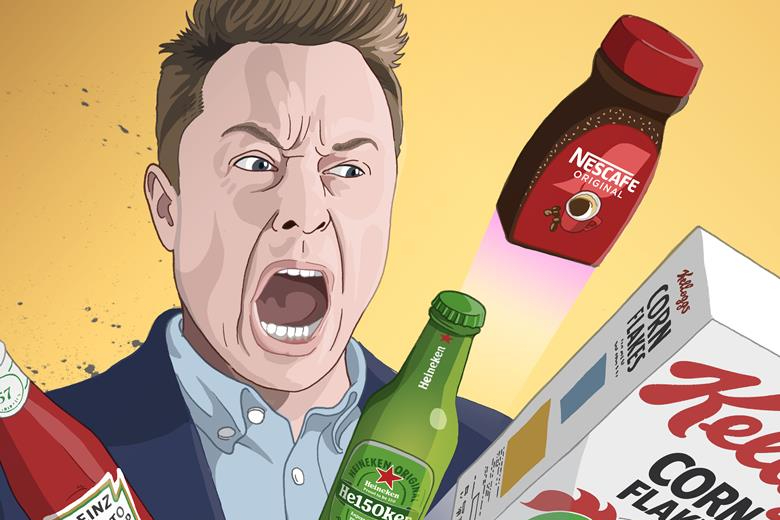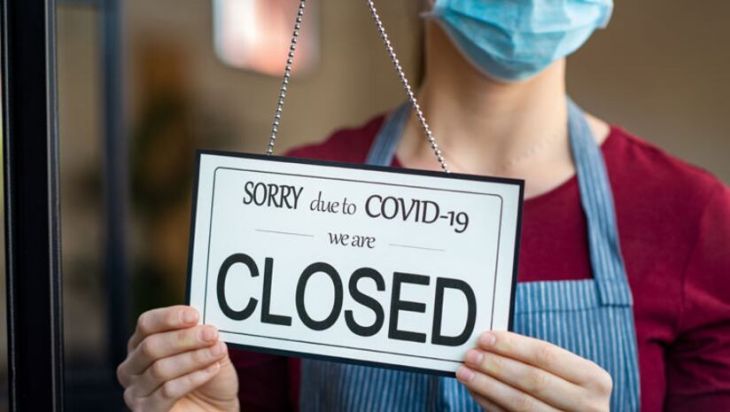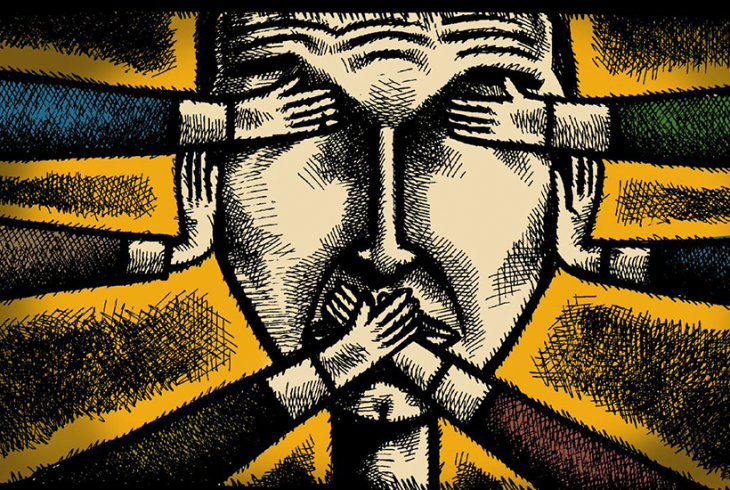
Why you shouldn't believe what they say about X & Musk
February 2024 , Chris Bullick
Letter to the editor, The Grocer.
Dear editor,
In response to you recent article ‘Has Twitter/X become too hot for advertisers to handle?
Some thoughts on why brands should exercise some judgment in what and who they listen to about X and Elon Musk.
The Grocer article was sub-titled:
“Since Elon Musk’s takeover of Twitter, advertisers have left in their droves. Is there still a place for food & drink brands on the X-rated platform?”
To me the article would have been more interesting if it had been titled:
“Since Elon Musk’s takeover of Twitter, advertisers have left in their droves. What or who is driving them away?”
According to the Grocer article, Advertisers are leaving the platform because of:
- “Antisemitic conspiracy theory posts” from Musk
- Someone created a spoof Pepsi and Nestlé account
- Musk “entertaining right-wing conspiracy theories”
- Claims from the ‘Center for Countering Digital Hate’ that X is promoting “extreme hate speech” after Musk’s purchase.
And essentially if you ask UK advertising types what they think of X/Musk you will just hear from an echo chamber of views that amount to not much more than "Musk/Bad, all other forms of social media good."
But how well-founded are the accusations? Musk’s supposedly antisemitic posts aren’t quoted (perhaps because most people wouldn’t think they were antisemitic?). Neither are his ‘right-wing conspiracy theories’. Perhaps these are just the go-to slurs against anyone who doesn’t support all the current orthodoxies.
So first of all – what I actually agree with in that article – and my personal interest in Twitter. Personally, I haven’t really used X, and I don’t really find it a useful source – except for breaking news that the mainstream media won’t report on. In a professional capacity – as a former digital marketing practitioner and now speaking for the agency – it does not come high on our list of preferred channels for promoting client’s brands. This is for some of the reasons stated about the nature and form of some of the content – and yes – a lot of it is deranged. A lot of ‘opinion’ is. I accept the nervousness about Musk to a degree. But only to the degree that he is an obviously quirky, whimsical and mercurial guy. (How dare he be?) However, based on how much he is targeted, I would say 95% of that ‘fear’ among advertisers is generated by his detractor’s attacks – especially those that are not only trashing Musk, but threatening those advertisers themselves.
However. . . while the article asks a legitimate question that food and drink brands will be asking. Asking for opinions from the highly conformist advertising agency world just reveals blind prejudice and groupthink about X and Musk. (not surprising when you consider that marketers are the most self-conforming profession that exists).
As I suggested at the outset. The real story here is the motivation of Musk’s critics. None of these people had a problem with Twitter before Musk bought it. That is very telling as it is Musk’s ownership that is making them unhappy. Musk’s X is the stand-out social media platform in a sea of censorship-uniformity. It wasn’t always so. During the Covid era, all of these platforms – including Twitter – were subject to requests from governments to de-platform, demote, stifle, shadow-ban and otherwise censor opinion that went against the narrative that they were promoting. This led to truly eminent scientists from Harvard, Stanford and Oxford for instance – Dr. Martin Kulldorff, Dr. Sunetra Gupta and Dr. Jay Bhattacharya (who signed the Great Barrington Declaration calling for Focussed Protection instead of Lockdowns) being blacklisted, de-platformed and smeared across social media. The same thing went for much-lower profile ordinary citizens who dared to challenge the narrative. At that time Twitter also did the censorship that was asked for. Probably given the form of its previous owners, with even more zealous relish than the other platforms. Apparently even Meta resisted some more extreme requests.
All platforms bar X still widely censor. Try criticising the ‘safe and effective’ Covid jab narrative on Meta or YouTube even today. You will be censored. The only one not playing along with this is X. When Musk bought Twitter, he released information to the journalist Matt Taibbi in the ‘Twitter Files’. This revealed widespread collusion to de-fenestrate political enemies, leading for instance to the pre-election removal of the Washington Post’s Twitter account because of their reporting of the Hunter Biden laptop story.
So there are well-resourced operators who want Musk and X to toe the line like the other platforms. One that was quoted in The Grocer article was the ‘Center for Countering Digital Hate’. So who are the CDHC? They have been waging unrelenting warfare on X pretty much since Musk bought it. Their aim is to ‘defund’ X by intimidating and ‘shaming’ advertisers who’s brands appear on the platform. This is not doing a public service, it is pursuing a political vendetta, and act of industrial vandalism. But because they appear to be a well-intentioned third party they have been pretty successful in this. Although In August 2023 Musk filed a lawsuit against CDHC for hacking X’s data, and maliciously and unfoundedly accusing the platform of an “explosion in hate speech”.
These accusations are never properly evidenced. The CDHC’s founder also said Musk “Was personally and deliberately undermining decades of progress on the human rights of ethnic minorities, Jews, Muslims and the LGBTQ+ community, at an ever-accelerating rate”, with “the tacit approval” of his site’s advertisers. (notice the slur of advertisers by association). None of this again has ever been substantiated. But mud sticks - especially with a mainstream media ever happy to sling it in the interest of the their ‘Musk Mad/Bad’ narrative.
Although at least one journalist got very seriously unstuck this way. A BBC reporter rocked up to interview Musk having swallowed and endorsed the ‘Massive rise in hate speech’ slur without having done any research as to whether it was actually true. Musk well and truly owned him when the hapless journalist had to admit that he couldn’t either provide or remember a single example.
In the Grocer article ad industry figures queue up to attack X and Musk. Some of these attacks are just weak versions of ‘Musk/X Bad’.
“For now, businesses and brands are the only institutions left that people trust. They are expecting brands to tackle some existential societal issues that other institutions aren’t – such as climate change, economic inequality, disinformation – without becoming politicised.” Says Wander Bruijel for instance.
This is almost incomprehensible. To try to paraphrase it in order to make sense: “Consumers expect brands to support all the progressive causes because no one else will, and they want to be able to do it without becoming political”. What has this got to do with Musk and X? Or how does it form a critique of him or X? In fact we know that consumers DON’T want brands to support those exact causes – because doing so is political!
My agency – The Pull Agency – researched a representative sample of UK consumers and asked them what they thought of brands supporting ‘progressive’ causes. 70% were unsure or uneasy about it. Only 15% wanted brands to take a stand on these causes. 60% just wanted businesses to "Pay their taxes, treat people fairly, respect the environment, and not treat it as a PR opportunity." So no, they don’t ‘Expect brands to tackle. . . existential issues’ – in fact they would rather they didn’t. And again – what's this got to do with the merits or otherwise of advertising on X?
So for anyone swallowing the ‘massive rise in hate crime’ charge, I would say – check out who is saying it. CDCH is just one of a plethora of self-appointed fact checkers, misinformation and hate speech vigilantes set-up in recent years. Often their backers are not revealed (those of CDCH are not) and funding is very murky. However, once revealed it typically “explains a lot”.
The intent of these morally vacuous operations is to silence opinions (or’ hate-speech’ in their parlance) they (or more likely their backers) don’t like and destroy their businesses. As such they form part of what Matt Taibbi has called the ‘Censorship Industrial Complex’. Their aim is censorship of the legitimate ideas and opinions of others. They don’t want even to ‘correct’ X, they want to take it down for good. And remember – the censors have never, ever, in history been the good guys. Fortunately for us all, I think they chose the wrong guy with Musk.





